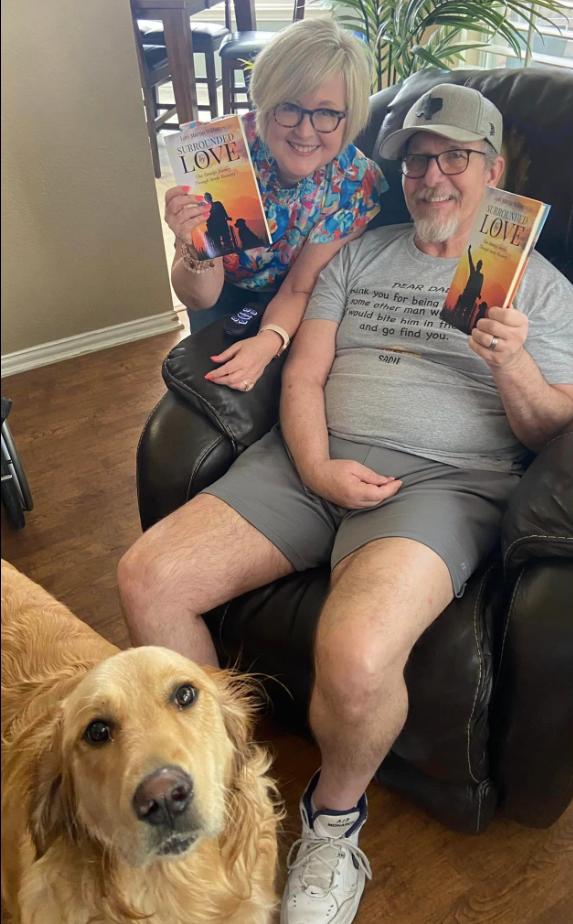Navigating the Emotional Ripple Effect of Stroke: A Caregiver’s Guide to Staying Resilient in 2025
- Lori Williams

- Aug 14, 2025
- 3 min read
When a stroke—or any sudden, life-altering diagnosis—hits your family, it feels like time freezes. I remember the icy Christmas night of 2022 when my husband, Mark, suffered his first of four strokes. One minute we were getting ready for dinner; the next I was speeding to the hospital, praying he’d still be himself when we arrived. That moment marked the start of a marathon I never trained for, but it also taught me invaluable lessons about the emotional impact of stroke on families and how to keep moving forward.
Below, I’m sharing what I’ve learned so you can face your own caregiving journey with knowledge, confidence, and hope.
The Immediate Emotional Aftermath of Strokes in Families
Shock & Disbelief - The first wave is pure numbness. Even if you knew the risk factors, nothing prepares you for the reality of sirens, ER lights, or care-flight helicopters.
Crisis Mode & Hypervigilance - Once survival is assured, you slip into 24/7 alertness: checking facial symmetry, monitoring meds, sleeping with one ear open. Hypervigilance can keep your loved one safe, but unchecked it wrecks your sleep and mental health.
Role Reversals - Spouses transform into nurses, adult children bathe their parents, and the family dynamic shifts overnight. Acknowledging this new reality early helps everyone adapt faster.
The Long-Term Psychological Toll of Strokes
Anxiety & PTSD-Like Triggers – Every unfamiliar cough can jolt you back to the worst night of your life.
Depression & Living Grief – You can absolutely grieve someone who is still alive. I miss Mark’s confident stride and smooth Texas drawl every day.
Caregiver Guilt & Compassion Fatigue – Snapping after a 15-hour ER marathon? Normal. Feeling guilty afterward? Also normal. Give yourself grace.
Coping Strategies That Actually Work
Strategy | Why It Helps | Quick-Start Tip |
Therapy or Support Groups | You’re not alone; shared stories = shared strength. | Search “stroke caregiver support group near me.” |
Micro-Respite | Prevents burnout before it starts. | Schedule a 30-minute daily walk or guided meditation. |
Education & Empowerment | Knowledge lowers fear and boosts advocacy. | Learn FAST stroke warning signs; teach the whole family. |
Celebrating Small Wins | Rewires the brain to notice progress. | Keep a “tiny victories” journal—first stair climbed, clear word spoken, etc. |
Build Your A-B-C Emergency Plan
A – At-Home Toolkit
Updated med list on the fridge
Grab-and-go hospital bag (blanket, chargers, snacks, your own meds)
B – Backup Care
Identify reliable home-care agencies or trusted friends who can step in for a shift.
C – Contingency Housing
Research local rehabilitation or memory-care communities before you need them. Knowing options brings peace of mind.

Finding Joy in the Present
Celebrating a controlled slide instead of a catastrophic fall or cheering as your loved one takes three shaky steps isn’t “settling.” It’s choosing to spotlight resilience over loss. Laughter in the chaos is not denial—it’s medicine.
Key Takeaways
Emotional whiplash is inevitable—have self-compassion when shock, sadness, and anger collide.
Long-term caregiver stress is real—fight it with breaks, community, and professional help when needed.
Preparation beats panic—an ABC Plan can shave hours (and heartache) off future emergencies.
Small wins matter—document and celebrate them; they fuel the next milestone.
Helpful Resources
Aging in Style Podcast with Lori Williams – Browse our stroke-focused episodes for practical tips and expert interviews.
Surrounded by Love: One Family's Journey Through Stroke Recovery book
American Stroke Association (stroke.org) – Up-to-date research, prevention guides, and support forums.
Alzheimer’s Association (alz.org) – Excellent for overlapping dementia-care questions.




Comments